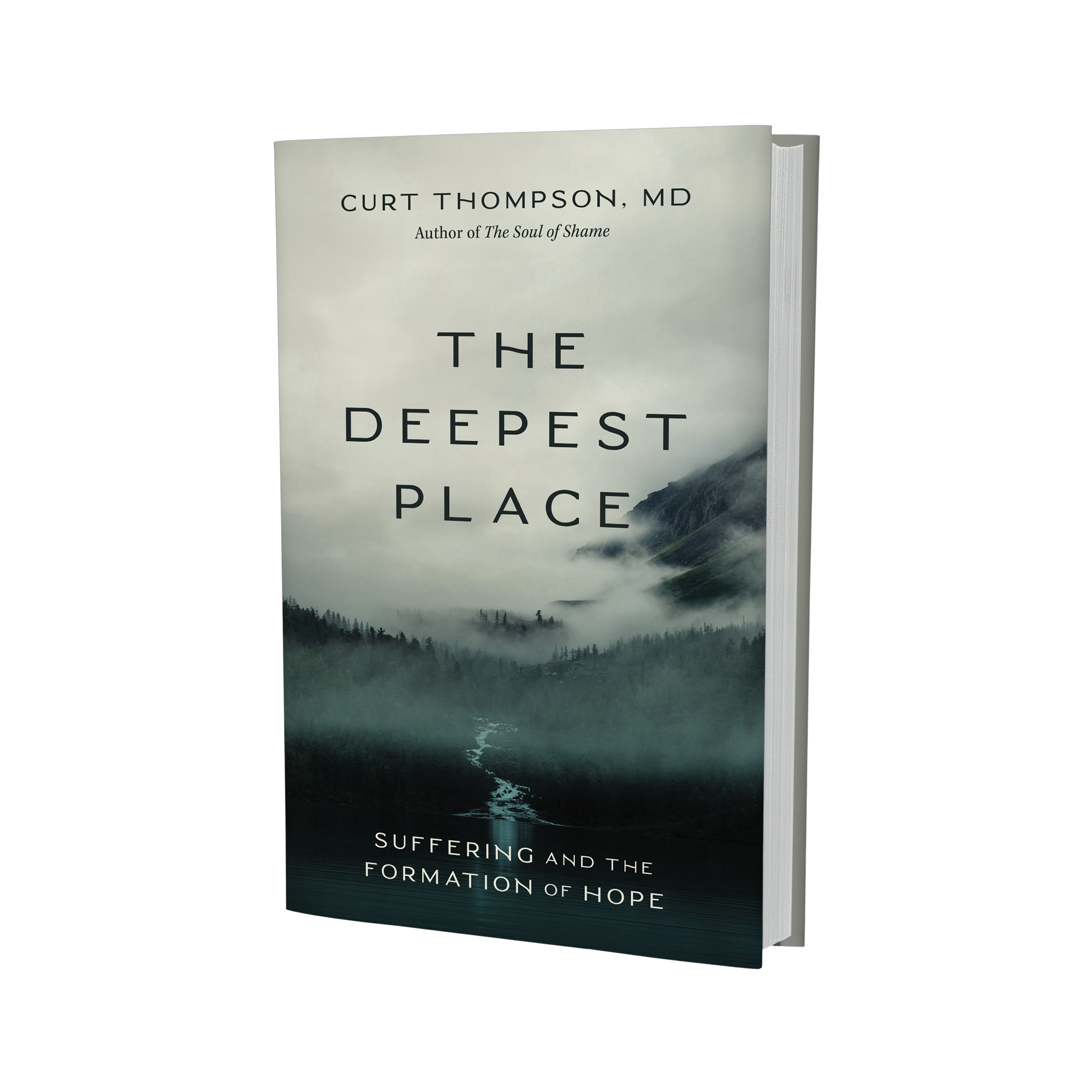A Body of Work

April 15, 2020
A Body of Work
By now, most of us have noticed. And either we or someone we know is talking about it. Zoom fatigue. Irritability. No fever, cough or body aches necessary. Just the normal, run-of-the-mill symptoms of social distancing. And mostly, people are describing how much more exhausted they are at the end of their days compared to what their lives were like before three weeks ago. All of this highlights one element of what it truly means to be human that our encounter with the coronavirus has drawn our attention to: our bodies.
For many reading this, your days have become a continual stream of Zoom or FaceTime or Skype meetings at work or with family and friends. What used to be a convenient and at times even delightful technological means of connection has become something else entirely. For some of us, Zoom is a new four-letter word. We all know something isn’t quite right.
In the language of interpersonal neurobiology, the mind is understood as an embodied and relational process. As Christians what this is hinting at is the fundamental reality of the Genesis account of creation: that God “formed the man out of the dust of the earth and breathed into his nostrils the breath of life and man became a living being.” (Gen. 2:7). We are dirt, and we are breath; we are embodied and we are spirited. Take either one away and we stop being fully human. And what we are experiencing is the act of living disembodied lives.
As I mentioned earlier, after all the online conference videocalls, we are far more tired than usual. And as it turns out, there is a good reason for this. Human beings use our bodies, vis-à-vis our actual words, to communicate upwards to 85-90% of everything we “say.” These nonverbal cues—eye contact, tone of voice, facial expression, body language, gestures, timing and intensity of responses—are the body’s portion of what it means to “be” with others and ourselves—to communicate what we are experiencing. We send and we receive vital, live-giving exchanges to each other and this does not require conscious intention to do so. Our bodies are working independently of our conscious, thinking brain, enabling us to love and be loved, to be known and to know, even without the use of words. And this is why we are so much more tired at the end of the day.
Normally, our bodies are able to “say” things when we are in person that we don’t have to “think” about otherwise. I can say, “I’m really comfortable with you.” or “Wow, I can tell that was really hard.” without using words. This enables my “thinking” brain to concentrate on other things. But when I’m on a Zoom call, my “thinking” brain has to make up for what my body is not available to say. Hence, the conscious, cognitive domain of my mind is having to do much, much more work than it is used to doing. And to some degree, like an underdeveloped muscle, it has to work up to speed. But that metaphor only goes so far.
One of several things that COVID-19 has revealed is that our thinking minds are not able to make up for what our bodies—and our bodies alone—were created for. Our bodies, in fact, are looking for the presence of other bodies, as it were—and they’re not there. But that doesn’t mean that the anticipation mechanism that expects someone to be there in an embodied fashion stops working. Rather, like a cell phone that keeps “looking” for cell service that isn’t there will drain the battery that much quicker, so we are much more tired when our bodies can’t find each other in real time and space.
Moreover, not only are our bodies made to communicate with others, they are made for movement. Given how much more time we are spending sitting in front of our screens, we simply aren’t as frequently mobile. The elementary motion of getting up from your desk to go to another office for a meeting with real humans, as simple and minimally exertional as it may seem, provides important opportunities for us to rhythmically move about, chances we otherwise are unaware of and take for granted.
Furthermore, over the past three weeks we have begun to undergo a shift from the predominant feeling of anxiety to feelings of irritability and anger. (Not that anxiety has been replaced; merely overshadowed). Two obvious factors for this would be, first, our awareness of the devastation the pandemic is rendering in multiple domains of life; and second, our perception of having limited agency to immediately change its course. But a third and subtler—albeit no less powerful—factor is directly related to the significantly curtailed amount of plain, bodily movement that has drastically limited our physical interaction and contact with one another. What at first was our anxiety and dread about the potential lethality of the virus (anxiety which is no less potent now) is gradually being surpassed by our irritability in response to the limitations placed on our physical activity. This irritability is not just a function of our worry about the future; it is also our very bodies letting us know that they are tired of doing what we are asking them to do. Not only do we forbid their movement toward various places in order to be with other bodies; we constrain them to remain (virtually [no pun intended]), in the same place. In both ways, our bodies are prevented from engaging in the diverse environment they require in order to flourish.
Anger is a mobilizing affect that comes to our rescue when we perceive that we are powerless to protect against a threat. Powerlessness for the body is ultimately translated as immobility—the inability to move to defend oneself. And in our case, to defend ourselves against…being unable to move and connect with others. We see here how irritability grows out of immobility. And no wonder.
The fact that our bodies do so much work that we do not consciously regulate reminds us that they are not mere extensions of our “real” selves, as if who we really are is reducible to some private, internal collection of thoughts and emotions. That notion is a product of modernity, which would have us believing that our bodies, like the rest of creation, are things that we own, and therefore things we can manipulate for our own purposes, rather than gifts that we have been given to steward without our having any say in the matter. Gifts whose mere presence in the world are able to offer light and healing without our even being aware of it—until we no longer have access to that very presence.
We have just passed Easter, when we Christians celebrate the resurrection of Jesus. The embodied Jesus. Not an idea. Not wishful thinking. Rather, the physical presence of God on earth and on the move in the wake of all that evil could throw at him. God made our bodies as part of what it means for us to be human, and much like asking someone to breathe air that is only 15% oxygen instead of the normal 20%, we’re asking our bodies to do things they were not made to do. Even so, along with other suggestions I have offered regarding COVID-19, here are some additional things you can do to help:
- Make it a practice to take at least three 5-10 minute walks every day. Shorter, more frequent movement not only extends your body’s movement over the course of the day, it also gives you something to look forward to throughout the day, thereby reducing your anxiety along with your irritation.
- If possible, change your location of work in your home. This may be challenging, but different physical locations within your home over time gives your body the awareness of movement by virtue of being in a novel location.
- When possible, stand while doing work, especially when using a screen. This practice enables your body to work even while being less mobile.
- As you are able, limit the number of people on videocalls to three or less. This may sound unreasonable, or impossible. But the fewer people your brain—and body—has to keep track of, the less tired you will be. This may simply sound like common sense. That’s because it is.
- Greet as many people as you can whenever you are able. There is little cost to acknowledging the presence of another person, and we need to be acknowledged even by strangers. Not only will your thinking mind give and receive it, your body will as well.
- Plan for daily singing/worship while standing. Sing along with your most loved YouTube worship video as a means to use your body to tell your mind and soul that you are quite alive—and that you are not alone.
- Talk about your anger. There may be nothing more important than having a close friend or counselor validate that your anger is real and isn’t crazy. Not to mention that talking to someone about your feelings connects you to another person, which in and of itself will reduce your irritability and give you a greater sense of agency.
- Practice contemplative prayer. This form of prayer, especially while standing, strengthens your capacity to live in the present moment which protects against the irritability that emerges in the face of immobility.
Our bodies are hard at work. And although we are in a season in which we are asking them to work differently and harder than usual, know that you are not alone, and your work is not in vain.
